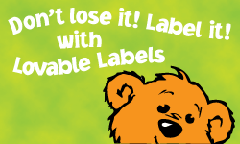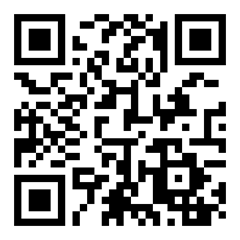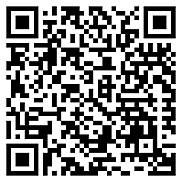Understanding Academic Achievement in Montessori Classrooms
The Dilemma
"We've loved having Jeremy in Montessori school, but it's time for him to go to first grade at a real school. "
This is a comment heard by Montessori school administrators and teachers every spring. Jeremy may be a thoughtful and considerate six-year-old who is reading, has memorized his multiplication facts, and can name all fifty states and their capitols, but his parents don't see his Montessori school accomplishments as valid.
Why?
Because one of the more disconcerting aspects for parents about Montessori education is the absence of grades and homework. It's not how we were raised and it's difficult to give up those standards of traditional schooling. As a parent, I, too, struggled with the idea of no grades.
I believe that understanding fundamental Montessori methods can help parents feel confident that their children are moving forward in a meaningful manner, and that Montessori principles are working in a powerful way in their child's learning. Oh, and besides no grades, did I mention no homework?
"The role of education is to interest the child profoundly in an external activity to which he will bring all his potential. "
- Maria Montessori,
From Childhood to Adolescence
What Gets Measured Gets Managed
Peter Drucker, considered the foremost management thinker in the 20th century wrote: "What gets measured gets managed."
It is essential that what we measure about our children’s progress and development are qualities that are meaningful and important. When parents are asked what they consider the most important items for their children to learn in life, parents answer with the following types of qualities:
- To have the ability to enjoy life;
- To value themselves;
- To be risk takers;
- To be self reliant;
- To be free from stress and anxiety;
- To have loving, peaceful lives;
- To celebrate their present moments;
- To experience a lifetime of well ness;
- To be creative;
- To fulfill their higher needs and to feel a sense of purpose.
This list comes from Wayne Dyer's book, What Do You Really Want For Your Children? For almost twenty years, I've posed this same question to parents, and have found these answers to be comprehensive.
What do most schools measure?
Most schools rely on results of standardized tests. Academic subjects, such as reading, writing and arithmetic are measured and given letter grades. But, are we measuring what is important?
Recent reports claim that one in a hundred adults in the United States are incarcerated and 44 million adults are functionally illiterate. May I be so bold to suggest that as a society we are not measuring what is important?
A major paradox of learning follows: Academic achievement builds on the concentration and independence created through self-selected activities. Montessori classrooms are excellent at building concentration and independence in children. When we focus on creating opportunities for meaningful work in a Montessori classroom, high academics follow. In the words of Frederick Herzberg, the psychologist who studied human motivation and achievement, "If you want people to do a good job, give them a good job to do."
In Montessori classrooms we give children challenging work to do, and they rise to the challenge. Montessori programs choose to not give grades because these measurements do not reflect the development of the qualities that we should be looking for in children.
I believe the purpose of education is to help children find their passion in life. Once passion is discovered, then an immense power is re leased in the child, creating growth and learning in effective and person al ways.
Montessori teachers focus on guiding individual development by looking at a child's concentration on tasks and the level of independence the child shows in self-selected activities. In a child's personally chosen activities, we see the glimmerings of interest and passion.
In Montessori classrooms our main purpose is not for our students to achieve stellar grades or high standardized tests scores. We are striving to create opportunities for meaningful work from engaged people, who are genuinely enthusiastic about their activities. Paradoxically, high achievement follows. We only have to know how to look for it.
Built-In Assessment System
Authentic Montessori programs have a built in assessment system. Our real life experience, in whatever walk of life we follow, shows us that it is a short step of faith to know this: The work is the test.
- Can you ride a horse?
- Can you cook a meal?
- Do you know enough math to balance your checkbook?
In our Montessori prepared environments, the child's work is the test. It is such a simple concept that we tend to overlook its brilliance. If you can do it, you know how to do it. That's real life testing. It's on the job training.
Why do we need grades and standardized tests to tell us what we should already know by observation?
The key element of a Montessori pre pared environment is the trained adult ob serving d1e child at work. The adult guidance in a Montessori classroom is based on observations of each child. The lessons given are based on observation of individual children as well as the observations of the entire classroom in the context of overall development.
We don't need to poke and prod to see what a child knows. We don't need to pull up the plant and check the roots to see if it's growing. We simply observe.
Authentic Montessori programs with trained adults provide the most effective assessment of the learning needs, as well as the accomplishments of the child. This information, unfortunately, cannot be communicated as easily as using five letters of the alphabet or percentile rankings from a standardized test.
Authentic Montessori programs have three key elements:
- An environment especially prepared for each three-year age span,
- A Montessori trained adult for that particular age group, and
- A three-hour work period of free choice activities for the children.
Montessori teachers' observations of children at work give incredible insight into the development of each child. The observations consider any obstacles a child might be en countering in his or her development as well as the strengths, interests and natural talents the child may express.
To think in a straightforward manner about the Montessori teacher's work with the child in the prepared environment, we might look at it this way:
Observation
+ prepared environment
+ pedagogical principles
+ knowledge of developmental continuum
= Optimal Learning and Growth in the Child
The power of a Montessori classroom begins with observation.
A Red Flag for Development
Each Montessori lesson presented by the teacher pertains to the age in which the child should be doing certain work. If a child is not doing certain work by the indicated age, it is a clue that the child may be encountering a developmental obstacle. For example, if a child cannot wash a table by age four, this indicates that we need to observe the child more closely.
As parents, we want to be, as Dr. Mel Levine calls it, "our children's mind watchers" and be on the outlook for any difficulties our children encounter. I promise, though I wish it were otherwise, there will be difficulties.
Parents' observations, Montessori teacher observations, and our children's work over a three-year cycle create a de tailed picture of who our children truly are: their likes, their dislikes, their strengths, their weaknesses, their opportunities and their risks. Grades can't tell us that. Only our observations can.
The Prepared Montessori Teacher
Montessori teachers are trained to observe and use personalized teaching albums which contain lesson plans for the age group in which they are trained. For example, the primary teachers have lesson plans for three to six-year-olds. In my experience, the curriculum contained in the albums for teaching three to six-year-olds contains enough lessons to keep a child busy with activities through at least a third grade level.
Elementary teachers' albums contain material to engage the mind to a college level, if need be. My upper elementary class visited with the head of the geology department at our local university. The professor told their going-out chaperone that the elementary students asked better Wormed questions than his graduate students. This, I believe, was due to the research techniques the students had learned and used in their Montessori elementary classroom.
The botany work available in an elementary classroom covers more material than my sophomore level botany course in college. Of course, I must confess I took botany while the dinosaurs were eating gingko leaves.
Montessori teachers have the lessons and the prepared environment to keep minds and hands engaged, no matter the age or talents of the child. For tl1e child who needs additional time to learn, or for the child who needs further challenge, the teacher's most important tool in working with the child remains ... observation.
As the prepared teacher in a prepared environment, I have watched children use their independence and concentration to do things some people might think impossible; for example, a child interested in math or reading jump four grade levels in two months. This kind of academic growth occurs because the child takes the independence and concentration developed in other activities and focuses on chosen tasks within a three-hour work period.
Teaching Based on Needs
Teaching to your child's individual needs and interests is the key to your child's success in school and in life. The paradox of Montessori teaching is that when we focus on a child's needs, we help the child develop into the kind of person that possesses the following qualities:
| Happy | Giving |
| Confident | Self-Motivated |
| Honest | Life long learner |
| Independence | Financially responsible |
| Responsible | Empathetic |
| Respectful | Compassionate |
| Loving | Having integrity |
| Excited about life | World citizen |
When a person possesses these personality traits, strong academic achievement is a by-product. High academic achievement is no guarantee of developing these human qualities. These are age-old questions: Which came first, the chicken or the egg? Academic achievement or strong character development?
Montessorians see that helping children meet their fundamental spiritual and physical needs creates physically, mentally, emotionally and spiritually/socially healthy human beings. Teaching to needs comes first. Achievement follows. Nobody does it better than Montessori teachers.
What matters is not physics, or botany, or the works of the hand, but the will and the components of the human spirit which construct themselves through work. The child is the spiritual builder of mankind, and obstacles to his free development are the stones in the wall by which the soul of man has become imprisoned.
~ Maria Montessori
The Absorbent Mind
Measuring Academic Growth
Montessori schools find it difficult to communicate academic skill levels to parents. There are a few measuring sticks we can use to help us make sure that our children are meeting culturally determined norms in the basic skills of reading, writing and arithmetic. Keep Your Local Public School Standards Handy
Because public school educational standards vary from country to country, state to state, school district to school district, and year to year, it would be impossible for a Montessori teacher's training to take into ac count this multitude of standards to com pare to each child's individual progress.
With the advent of the internet, public school curriculum for most school districts is available on line, though sometimes trying to find it on some states' web pages is like looking for a needle in a hay stack. Check with your state's Department of Education as well as your local school district to obtain a copy of your area's curriculum standards. Twenty years ago, I paid $20.00 and waited six weeks for a copy of our state's public school standards. Today most standards are a free download from the internet.
Many Montessori training programs recommend that the public school standards be readily available to parents and the children in the classroom so that it is a simple process to glance over the standards for each grade level. I've visited many Montessori schools where the public school curriculum for the six-years of elementary is posted on the bulletin board in each elementary classroom.
Once every four to six weeks, I'd review public school standards individually with my elementary students, when I saw a need. Every student kept a copy of the public school standards in their portfolio.
After a session reviewing public school standards, I was amazed and amused when my second-year seven-year-old students realized they couldn't do all the mathematical operations with fractions. Off they went to remedy the situation, gathering materials and asking for fraction lessons right away.
My experience is that when confronted with evidence that there is something essential they should know, children in a Montessori classroom will take corrective action. Parents, as well as teachers, need to communicate to our children our culture's standards, as well as family expectations.
I admire this phrase used by Dr. Phil McGraw in his book Family First: "In our family we ... " then fill in the quality, such as tell the truth, are kind to other people, work hard, want to learn, are curious, etc. Our children need for us to keep expectations clear and in the air.
Portfolio Assessment
Montessori elementary students keep an individual daily work journal that outlines the activities they do each day. They are encouraged to keep samples of their work. In my classroom the children kept notebook sized portfolios. For large or group projects we would take photos and add them to the portfolios.
Work Journal
The work journal helps the child become more aware of how they spend their time, as well as serves as a record of lessons given and work done. The journal is often written in a spiral bound steno pad. This journal be comes more sophisticated and detailed as the child matures. The contents of a page of a six-year-old's journal follows:
Tuesday, January 15, 2008
8:00 am Arrive /Outside
8:30 am Class meeting
8:45 am Lesson with squares of numbers 1 to 10
9:15 am snack
9:45 am draw squares
11:00 am make poster of squares
11:30 am clean up / outside / lunch
12:30 pm listen to Secret Garden
1:00 pm grammar box II
1:30 pm work on time line of life
2:30 pm draw picture / story
3:00 pm go home
Portfolios
Digital and video photography make the cost and ease of capturing images of the children's work much more manageable than ever before. Many schools maintain electronic portfolios where large posters, science projects, and videos of plays can be conveniently stored and accessed.
Portfolios can be peer and teacher re viewed and assessed in terms of criteria that is rubric based. The peer and teacher assessment of work is more appropriate for the older child in the upper elementary classroom of the 9- to 12-year-olds, and the adolescent classrooms. We need to remember here that what gets measured gets man aged. Rubrics require thoughtful design.
Here is a student/teacher designed rubric developed to evaluate a report giving feedback on four areas: choice of topic, illustrations, spelling and punctuation. The group then decides what level of work was accomplished: attempted, limited, proficient or distinguished. Rubrics can communicate expectations for a quality project and give accurate feedback to students.
Assessment Criteria
Distinguished 4 points
Proficient 3 points
Limited 2 points
Attempted 1 point
Choice of Topic
Choice of topic well thought out, and information gathered from many sources.
Topic meets assignment parameters, information is accurate.
Topic meets assignment parameters, information sometimes inaccurate.
Topic does not meet requirements. Many inaccuracies.

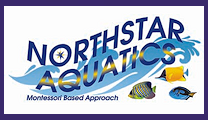
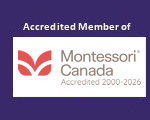


 [Click here for Hot Meals and Milk Order Form]
[Click here for Hot Meals and Milk Order Form]